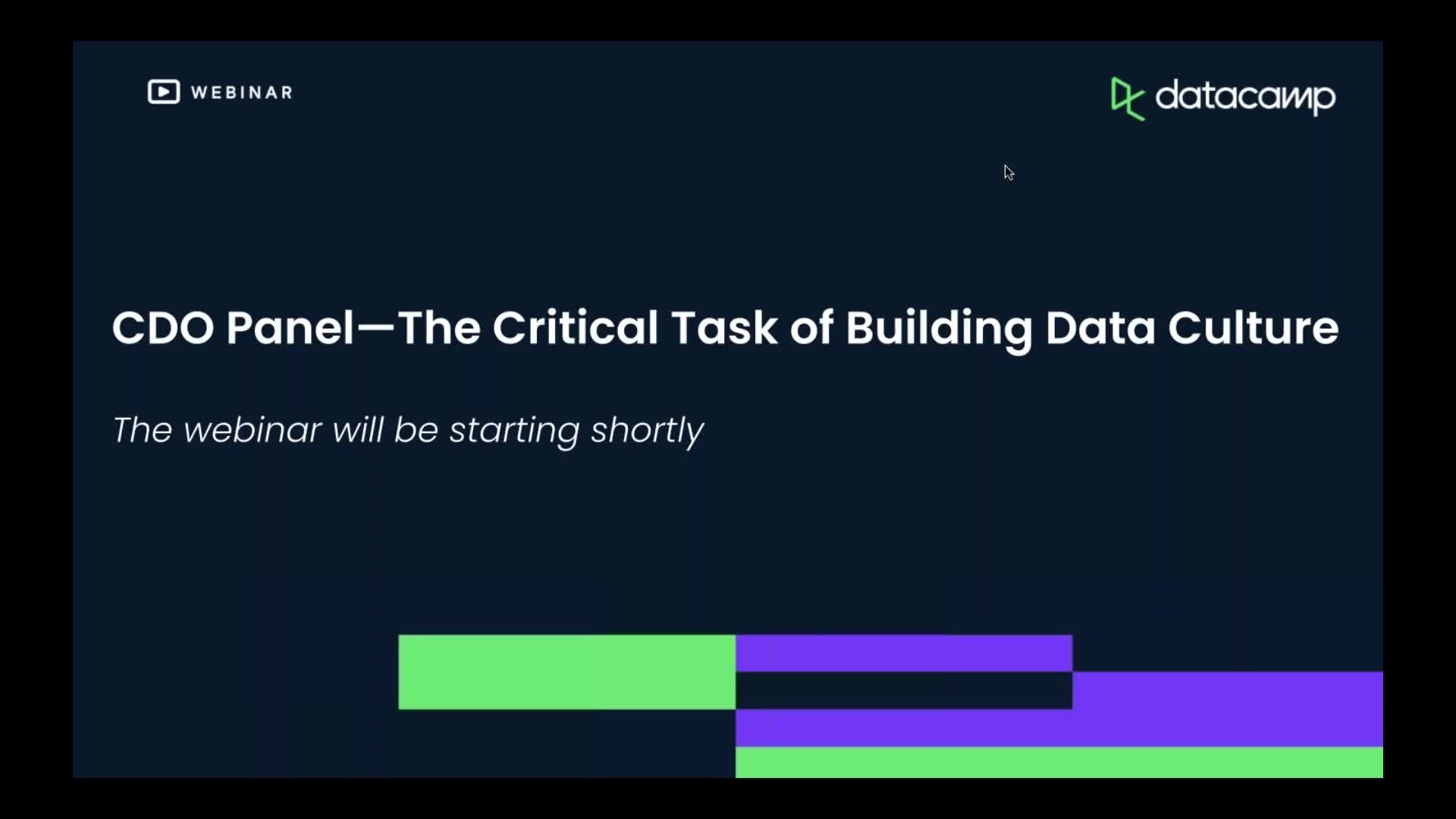Speakers


Mai AlOwaish
Chief Data & Innovation Officer at the Gulf Bank of Kuwait

Eddy Farhat
Chief Data Officer of Zand
Training 2 or more people?
Get your team access to the full DataCamp library, with centralized reporting, assignments, projects and moreCDO Panel—The Critical Task of Building Data Culture
March 2022
Related
webinar
Building Data Cultures
Learn how to build a data culture from Allianz Benelux Regional CDO Sutaman T Mwebinar
Building Data Literacy in Federal Agencies
The importance of building data culture and skills in government agencies.webinar
The People & Organization Components of Data Maturity
Discover how to accelerate data literacy and culture within an organization.webinar
Creating Learning Cultures with Kelly Palmer
How to build a learning culture that will be a foundation for learning programs.webinar
Building Data Fluency in an Organization
Dive into the value of data fluency in an organization and how to achieve it.webinar